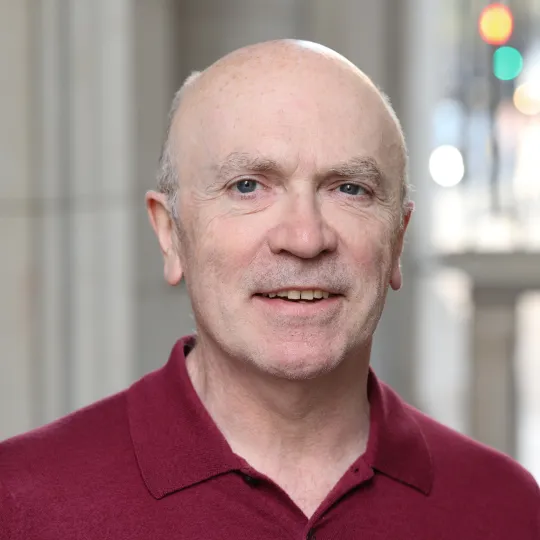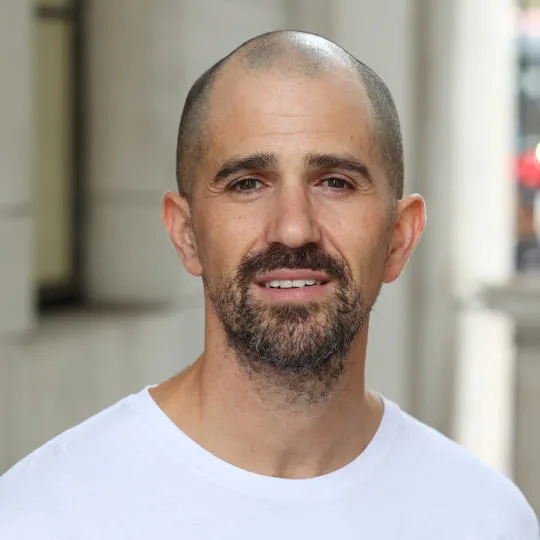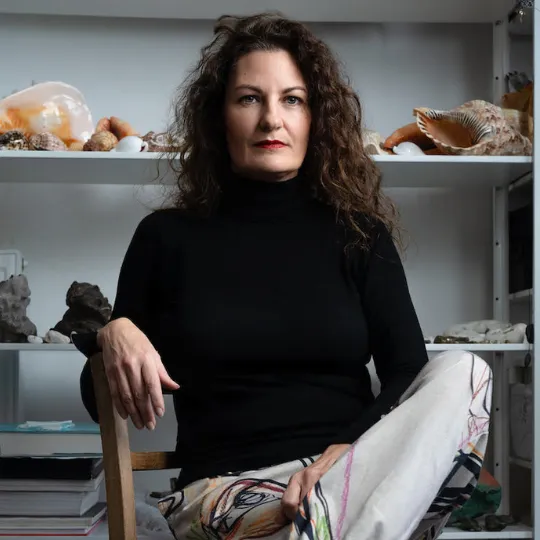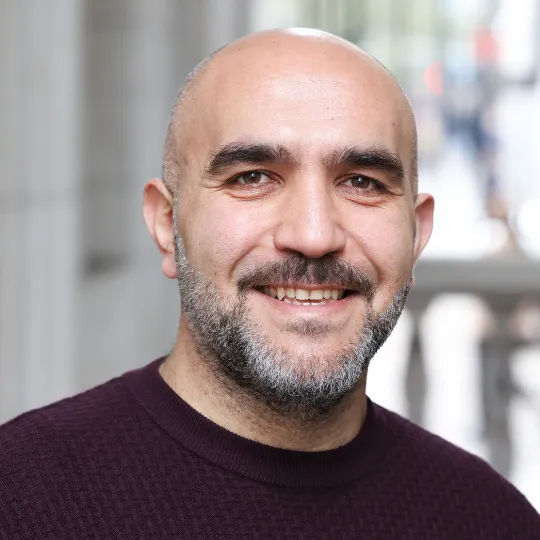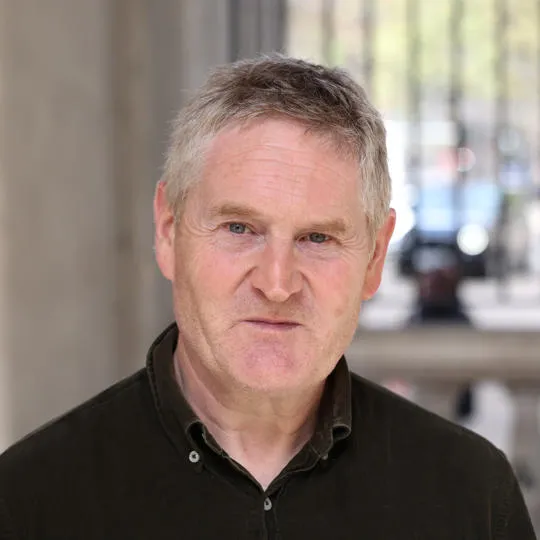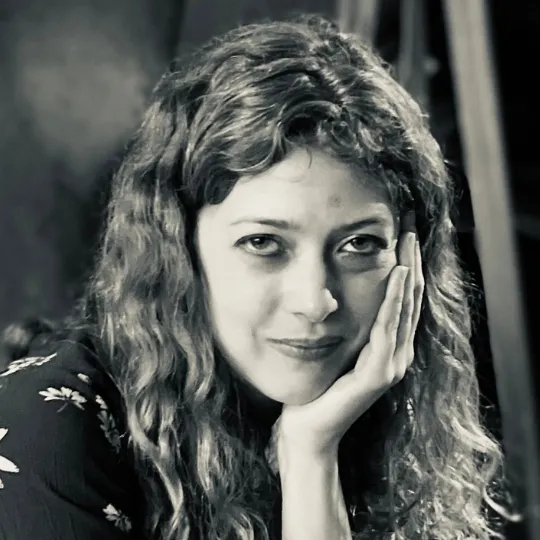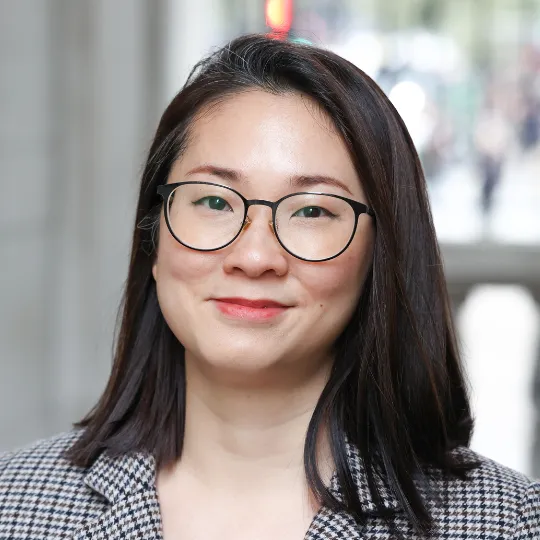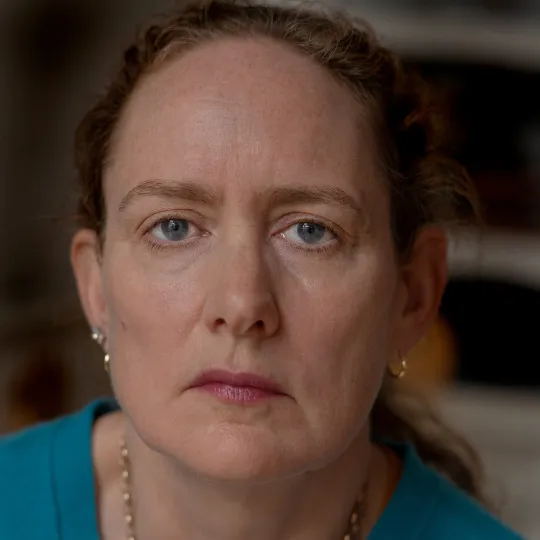The idea was to bring CMCI and our wider community together around a theme that felt both urgent and deeply resonant. Vulnerability in Research speaks not only to how we engage with and support marginalised and vulnerable groups, but also to how we, as researchers, navigate the personal, professional, and political risks that come with doing politically charged or justice-oriented work — particularly when it directly challenges the state and dominant power structures. In this precarious moment, when academic freedom and commitments to diversity, equity, and inclusion are increasingly under threat, it felt vital to open up space for honest, collective reflection on these, often less talked-about, challenges that shape our work.
Dr Anna Khlusova, Lecturer in Culture, Media and Creative Industries (Global Media), CMCI People, Culture and Environment Lead
30 May 2025
'Urgent and deeply resonant': researchers discuss vulnerability in academic work
On 23 April 2025, the Department of Culture, Media and Creative Industries at King’s hosted a workshop titled “Vulnerability in Research” as part of its ongoing Research Seminar Series.
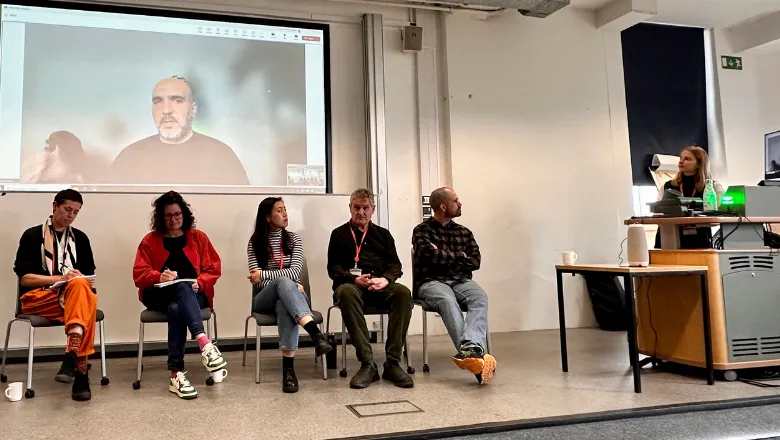
The workshop aimed to facilitate discussion on how researchers engage with marginalised communities and how they manage the personal and professional risks associated with conducting politically sensitive or justice-oriented research.
Researching Vulnerable Groups
The first roundtable, “Researching Vulnerable Groups,” chaired by Dr Munira Cheema, Lecturer in Culture, Media and Creative Industries, addressed the ethical, methodological, and emotional complexities of researching marginalised communities. Dr Jamie Hakim, Dr Xiang Fan, Dr Kate McMillan, Dr Trish Scott, Dr Aqeel Abdulla, and Dr Andrew White shared their experiences from projects working with queer communities, refugees and forced migrants, Indigenous groups and political activists.
Dr Jamie Hakim spoke about his recent book Digital Intimacies on queer men’s use of smartphones to negotiate intimacy and vulnerability, while Dr Xiang Fan presented a practice-based documentary project working with Hong Kong migrants in the UK. Dr Kate McMillan reflected on collaborative art workshops with forcibly displaced women in South London as part of her Never at Sea exhibition, raising the importance of mentoring early-career researchers working on similarly sensitive topics. Dr Aqeel Abdulla spoke about his participatory arts projects with refugee communities, discussing different approaches and ethical considerations involved in creating theatre with and about refugees. Dr Andrew White discussed the risks faced by interviewees and collaborators when working on politically sensitive topics in Northern Ireland and China.
The roundtable explored understanding researchers’ responsibilities towards research participants, responsibly navigating their expectations, as well as highlighted potential limits to accessibility and impact posed by academic language.
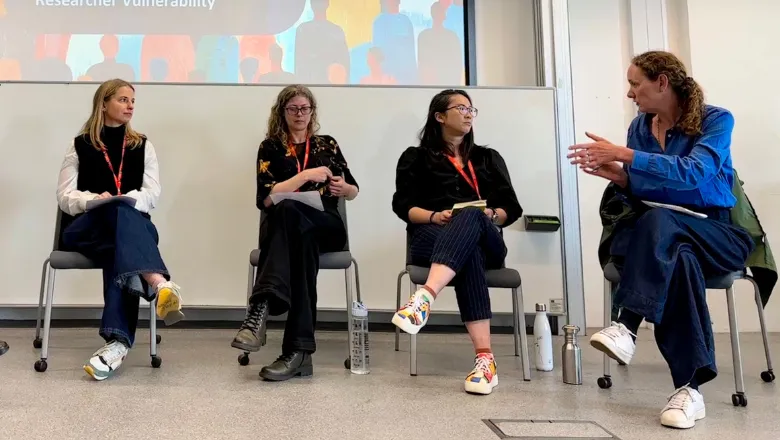
Researcher Vulnerability
The second roundtable, “Researcher Vulnerability,” also chaired by Dr Munira Cheema, shifted focus to the often-unspoken risks and pressures faced by researchers themselves — especially those whose work directly challenges the state or establishment.
Speakers Dr Anna Khlusova, Dr Shelley Galpin, Dr Siao Yuong (Rong) Fong, and Dr Clare Carolin shared personal experiences of (self-)censorship, surveillance, and the emotional toll of conducting sensitive research.
The discussion underscored the urgent need for institutions to better support researchers navigating politically charged and emotionally challenging environments.
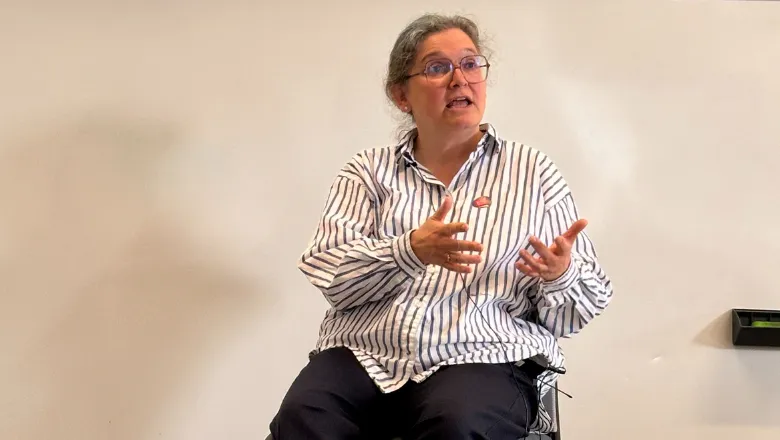
Vulnerability in academic life
The workshop also welcomed Dr Pauline Stoltz, Research Advisor at Kristianstad University, Sweden, as guest speaker. Drawing on her extensive academic career and advisory work across Sweden, Denmark, Taiwan, and the UK, Dr Stoltz delivered a keynote on how vulnerability is embedded not only in fieldwork but also in the systems that govern academic life — including funding structures, ethics legislation, and institutional hierarchies. She also spoke about ethical engagement with non-human subjects – including water, plants and ecosystems – in research.
Dr Stoltz’s reflected on two projects that directly engage with the theme of vulnerability: her 2020 book Gender, Resistance and Transnational Memories of Violent Conflict, and her recent collaboration with Dr Anna Khlusova on Russian LGBT activists and the memory politics of sexual citizenship.
Looking ahead
The event, attendees say, highlighted the Department's commitment to reflective, socially engaged and caring research practices and provided space for dialogue, collaboration and intellectual exchange. Building on the momentum, CMCI plans to establish these thematically focused workshops as a permanent feature of its research calendar.
This event reminded us why we do what we do as academics. A huge part of our work is to teach students and do all the necessary administrative and pastoral work that ensures teaching is as accessible and enriching as possible for them. However, to inspire others, one needs to keep the passion and energy high, and events like this one are how we do this. It is extremely important to see the commitment and rigour behind the work of colleagues – such values are contagious!
Dr Aqeel Abdulla, Lecturer in Culture, Media and Creative Industries, Deputy Director of the King's Sanctuary Programme
“I felt so bolstered up by this day and feel so blessed to be in our extraordinary Department, in which there are truly kind and ethical colleagues to work with and work alongside. It would be wonderful to have this as something to look forward to in the future. What worked so well was having a connective theme that gave us a window on people's research while allowing us all to critically reflect and connect.
Professor Amza Reading, Professor of Culture and Creative Industries
The workshop created a vital opportunity for addressing potential and actual vulnerabilities encountered by both research subjects and researchers. We plan to use the workshop as a model for planning future events around key issues in research practice.
Professor Paul McDonald, Professor of Media Industries, CMCI Research Lead

